Stephen Hawking Medal 2024 winners announced at star-studded Starmus VII festival
Starmus VII's theme is 'the future of our home planet'.
BRATISLAVA, SLOVAKIA — Last night (May 15) musician, artist and filmmaker Laurie Anderson was the first to receive the prestigious Stephen Hawking Medal for Science Communication during the Starmus festival award ceremony hosted by popular science comedian Robin Ince and Starmus founders astrophysicist Garik Israelian and astrophysicist and guitarist Brian May.
Anderson was just one of four recipients of the Stephen Hawking Medal, an award created by Stephen Hawking and Alexei Leonov, together with Brian May and Garik Israelian in 2015.
In 2002 Anderson became NASA's first artist in residence, a two-year commission to produce a piece of work completely at her creative freedom. The work inspired her performance piece "The End of the Moon." As a performance artist and musician Anderson has collaborated with many people including Brian Eno, Jean-Michel Jarre, William S. Burroughs, Peter Gabriel, Robert Wilson, Christian McBride and Philip Glass.
Related: Science and music festival Starmus VII is about to rock Bratislava with a stellar lineup
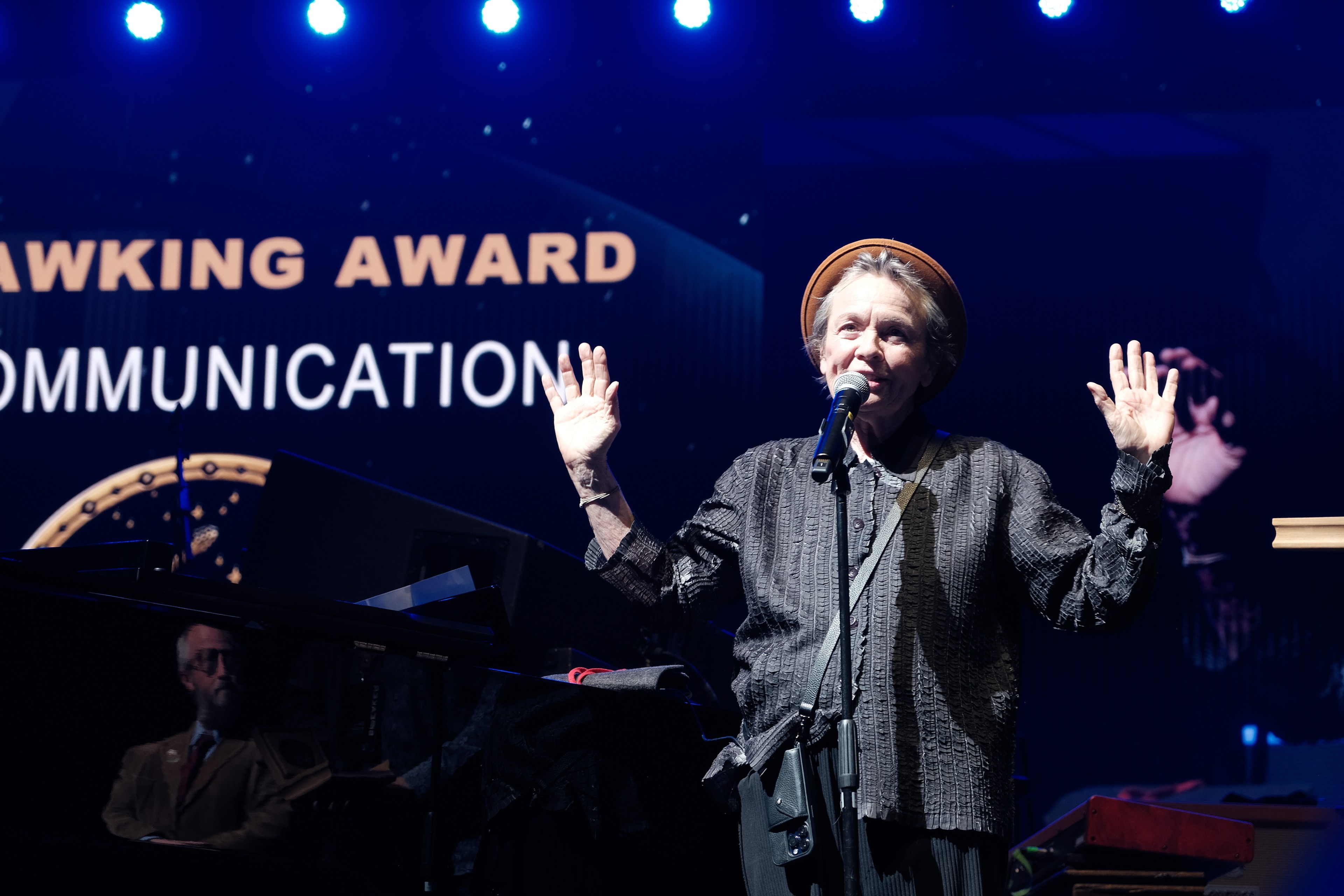
The Stephen Hawking medal is awarded to individuals and teams who have made significant contributions to science communication across four categories: Music & Arts, Science Writing, Films & Entertainment, and Lifetime Achievement.
The second award of the evening was presented to filmmaker Christopher Nolan for inspiring the next generation of artists and scientists with his films. Nolan received his medal in absentia.
"This means a lot to me, I think the relationship between art and science is very important, certainly in my work," Nolan said in his recorded acceptance speech. "I've taken great pleasure in trying to communicate some of what I've learned about science from scientists and how truth can be stranger than fiction."
Get the Space.com Newsletter
Breaking space news, the latest updates on rocket launches, skywatching events and more!
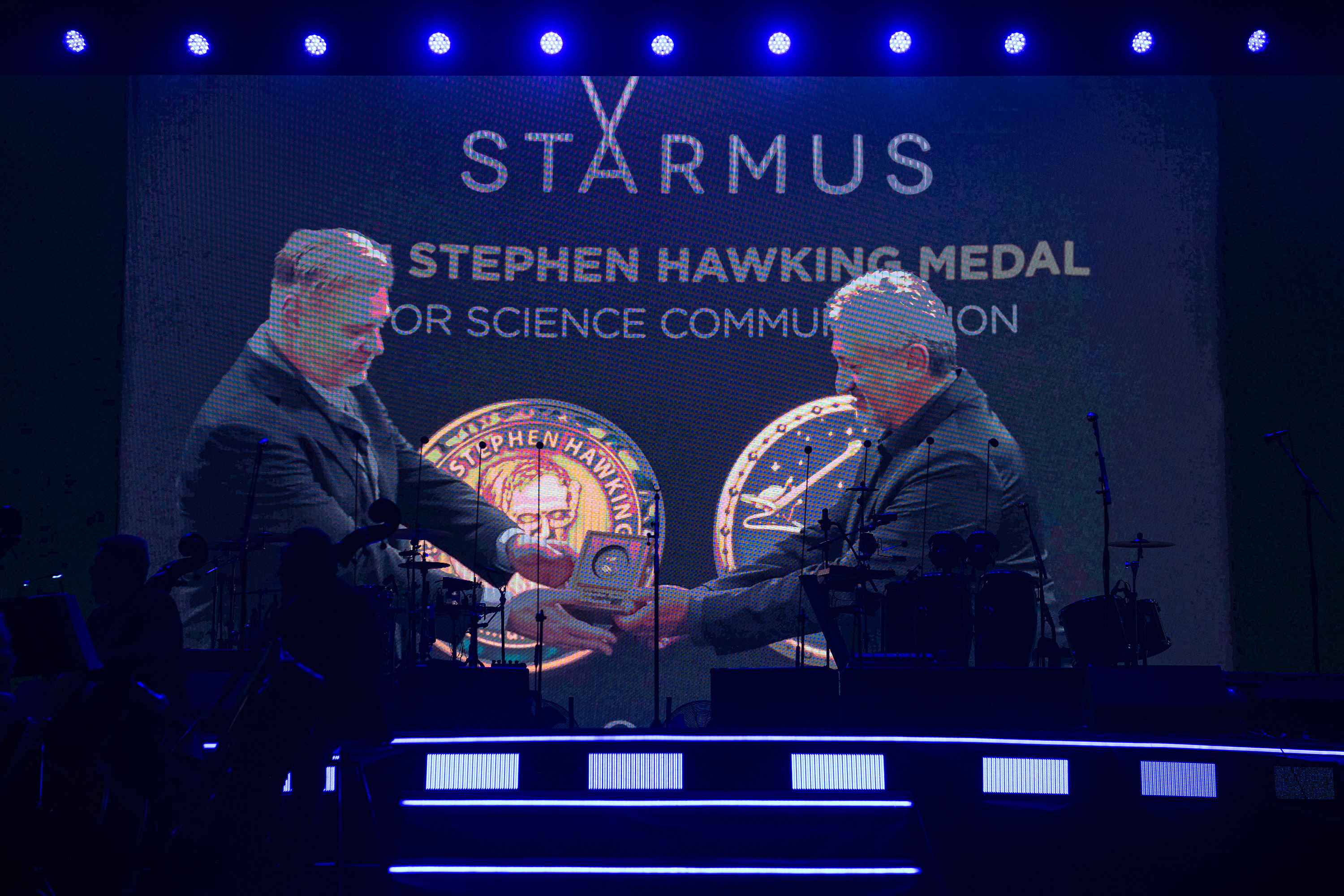
The third award was presented to biologist and presenter Sir David Attenborough who also received his medal in absentia. He had written a letter to Brian May containing his acceptance speech which May read as the following:
"I am of course greatly complimented to have been awarded the Stephen Hawking Medal, to be presented in Bratislava. I'm sorry to say that I can't really get to Bratislava to receive it so if you could do that on my behalf I would be hugely grateful and if you are able to spare the time needed to deliver it here well then, of course, my cup will brim over. I don't get around much these days, by the time you read this letter I will be 98.
Many many thanks for this fine honour, god bless you all, best wishes, David Attenborough."
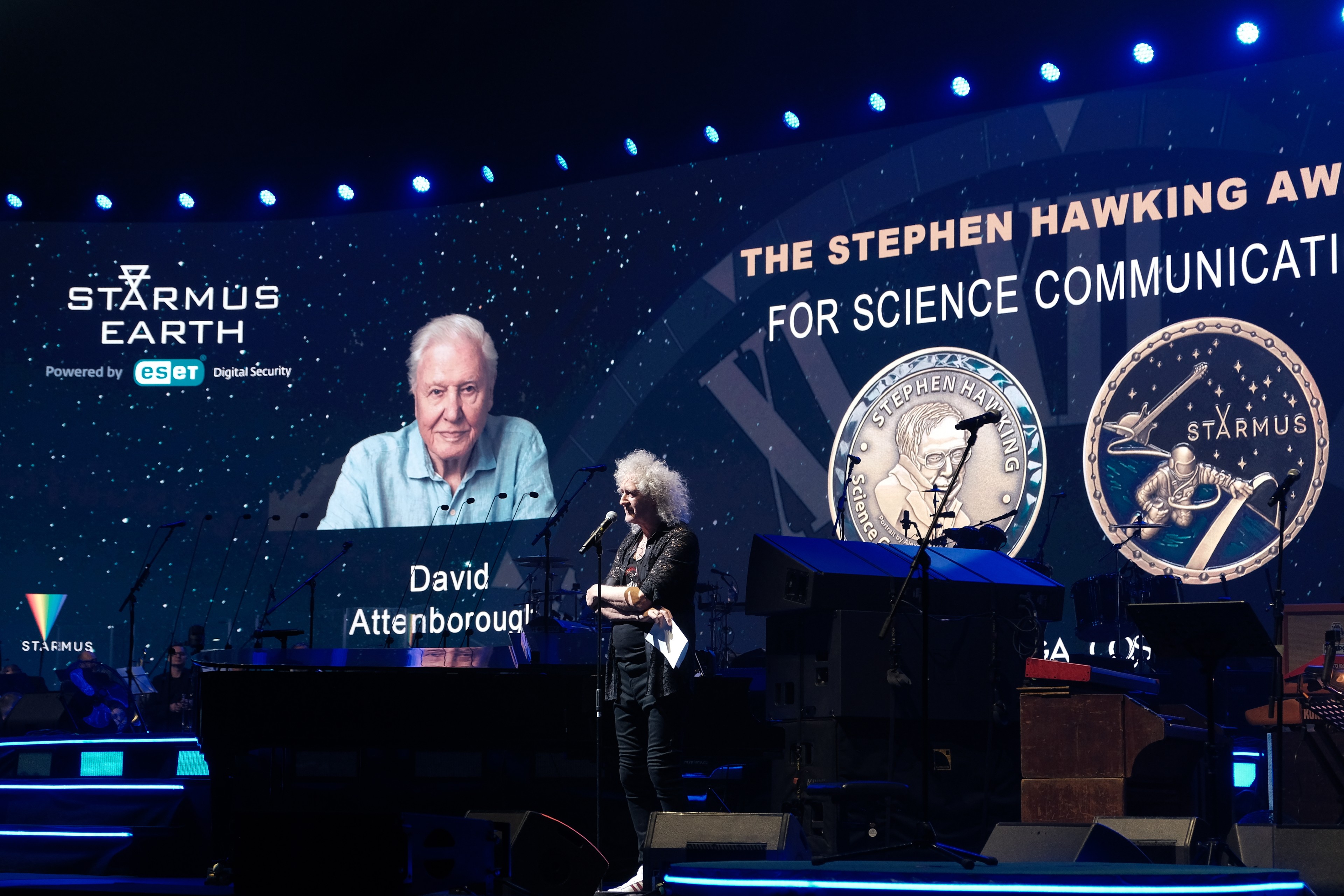
The final award of the night went to pioneering marine biologist and oceanographer Sylvia Earle. Earle has spent thousands of hours exploring the oceans over 50 years and strives to communicate her admiration for the oceans, the crucial life support systems of our planet.
"To put it mildly, I am deeply honored," Earle said during the ceremony.
"I recognize, generally, Starmus has been about space but OK, Earth is part of space, it just happens to be here," Earle continued.
"The ocean is hidden from view, except for those of us who have been privileged to dive in, who have been witnesses to the loss of over half the coral reefs, seagrasses, kelp forests. 90% of the sharks, are gone. There are many creatures we consume, not even respecting who they are, just thinking of them as products," Earle said.
"So as a witness, thank you for the opportunity to share the view and I hope I can inspire you to go see for yourself. It's there. It's a dominant part of the planet, it shapes climate, weather and is home to most of life on Earth. And we are just lifting the lid."
Earle ended her acceptance speech with a very poignant message for all.
"Our life support system is in big trouble. We have to do what we can to repair the damage we have caused."
There was but a dry eye in the house after Earle's speech, myself included. A truly inspirational figure who even at 88 is still changing the world and inspiring the next generation of explorers and scientists.
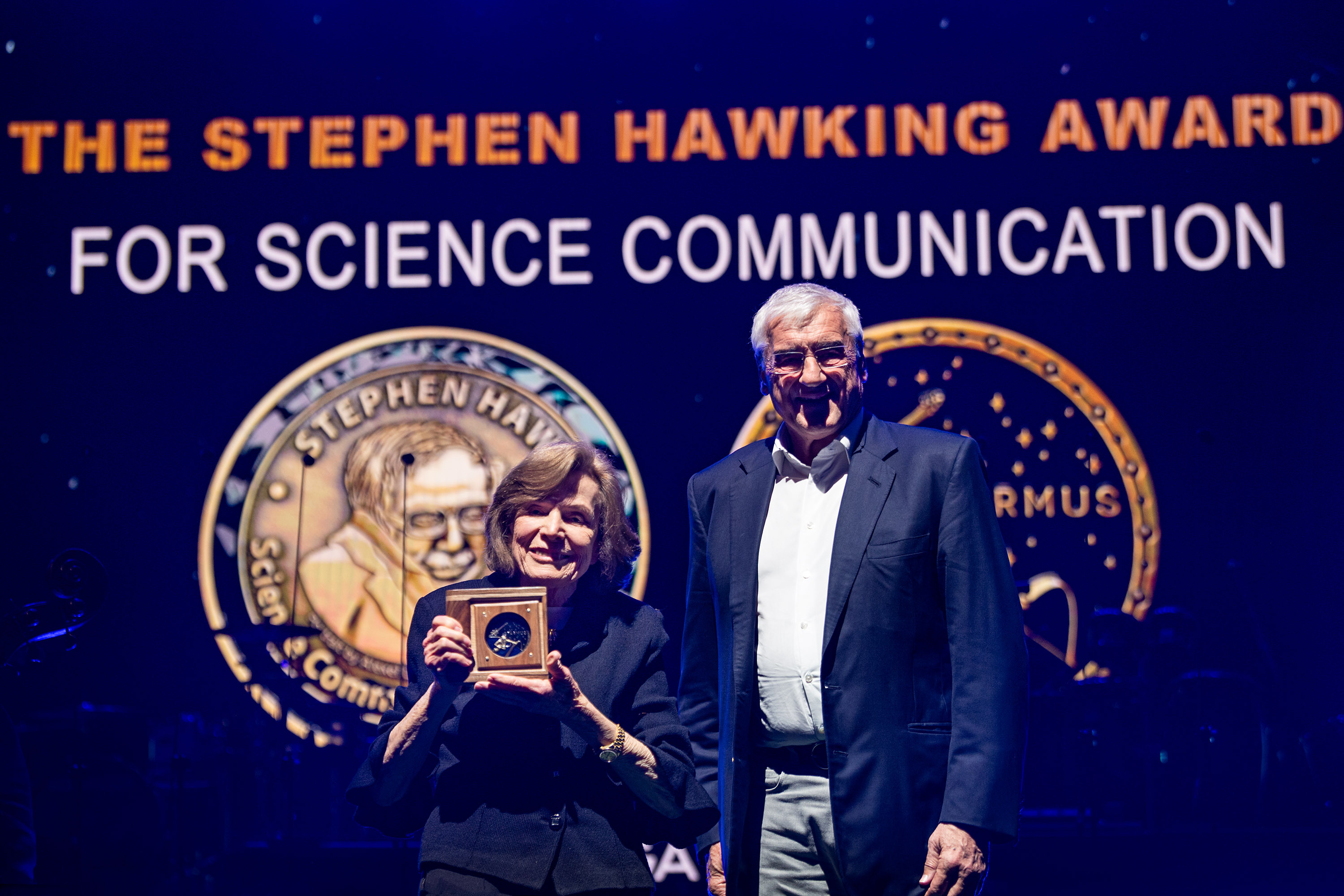
STARMUS is an ambitious festival that brings together the best scientific minds as well as talented artists to celebrate science and "engage humanity in the biggest questions of our time."
Previous Stephen Hawking Medal winners include Jane Goodall, SpaceX founder and CEO Elon Musk, Jean-Michel Jarre, Neil deGrasse Tyson, Brian Eno, Hans Zimmer, and the Apollo 11 documentary.
The seventh edition of Starmus is currently taking place in Bratislava, Slovakia from May 12 to May 17 with a stellar lineup of expert guest speakers including legendary anthropologist Jane Goodall, Nobel Prize winners Michel Mayor, Emmanuelle Charpentier and Kip Thorne, and former astronauts Charlie Duke, Chris Hadfield, Kathryn Thornton and Garrett Reisman.
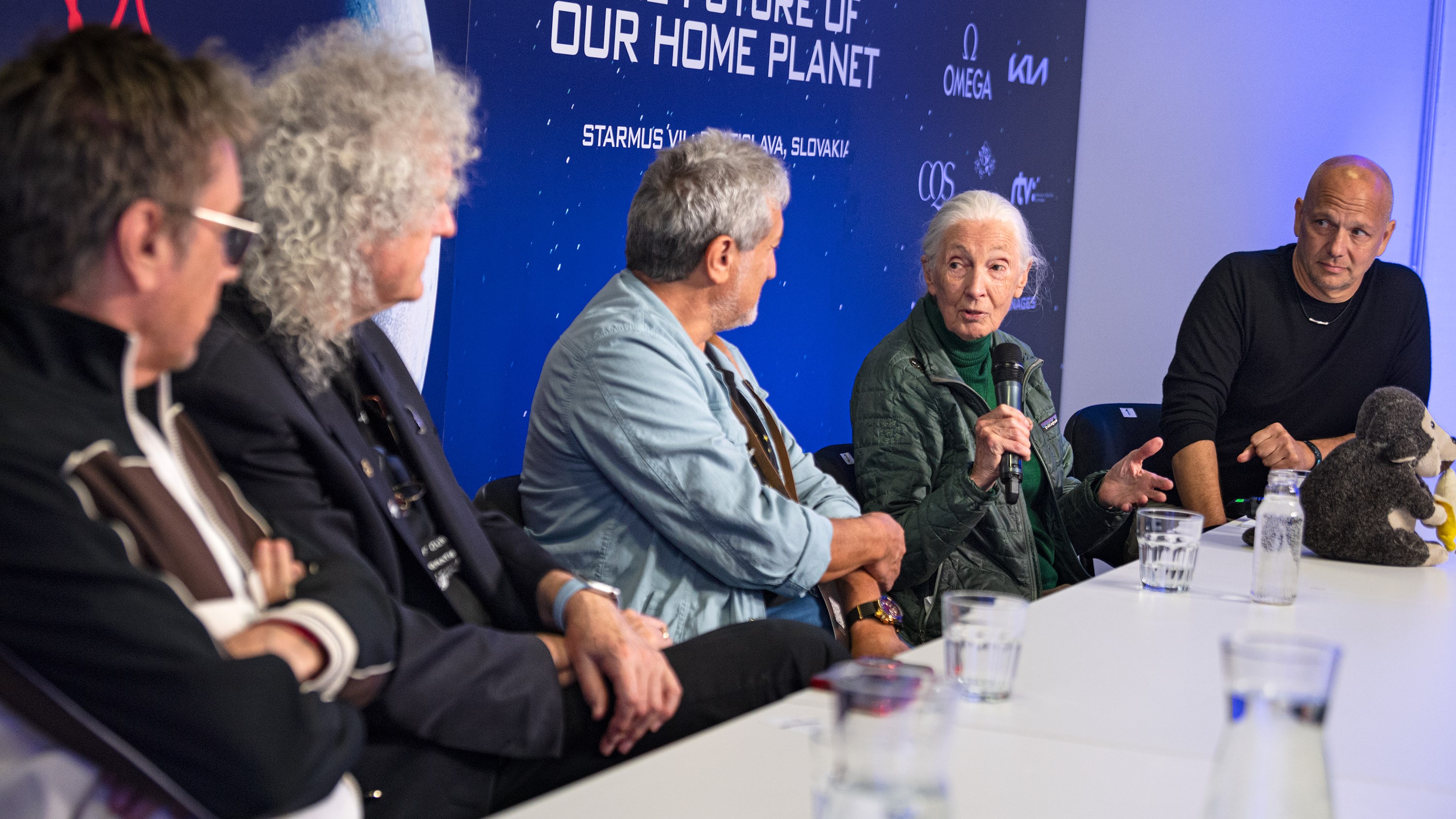
The underlying theme of Starmus VII is 'the future of our home planet' which brings over 50 leading experts in climate change, environmental science, artificial intelligence and cyber security to the Slovak capital. Jane Goodall's opening speech on May 13 brought a tear to my eye as she explained the importance of hope and that change is only possible when we all pull together.
Editor's Note: This article was made possible by transport arranged by Starmus, who invited Space.com to attend the festival.
Join our Space Forums to keep talking space on the latest missions, night sky and more! And if you have a news tip, correction or comment, let us know at: community@space.com.
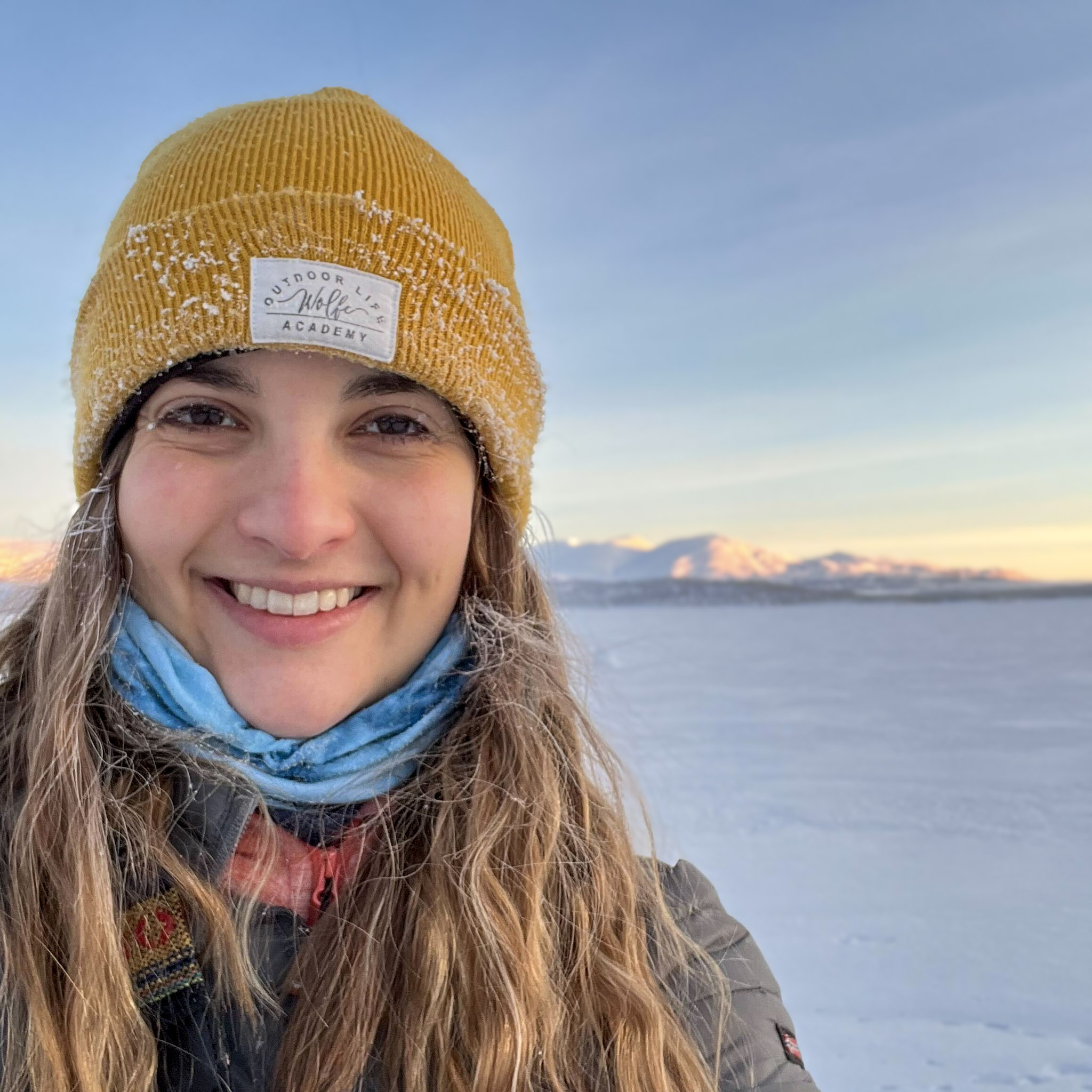
Daisy Dobrijevic joined Space.com in February 2022 having previously worked for our sister publication All About Space magazine as a staff writer. Before joining us, Daisy completed an editorial internship with the BBC Sky at Night Magazine and worked at the National Space Centre in Leicester, U.K., where she enjoyed communicating space science to the public. In 2021, Daisy completed a PhD in plant physiology and also holds a Master's in Environmental Science, she is currently based in Nottingham, U.K. Daisy is passionate about all things space, with a penchant for solar activity and space weather. She has a strong interest in astrotourism and loves nothing more than a good northern lights chase!









